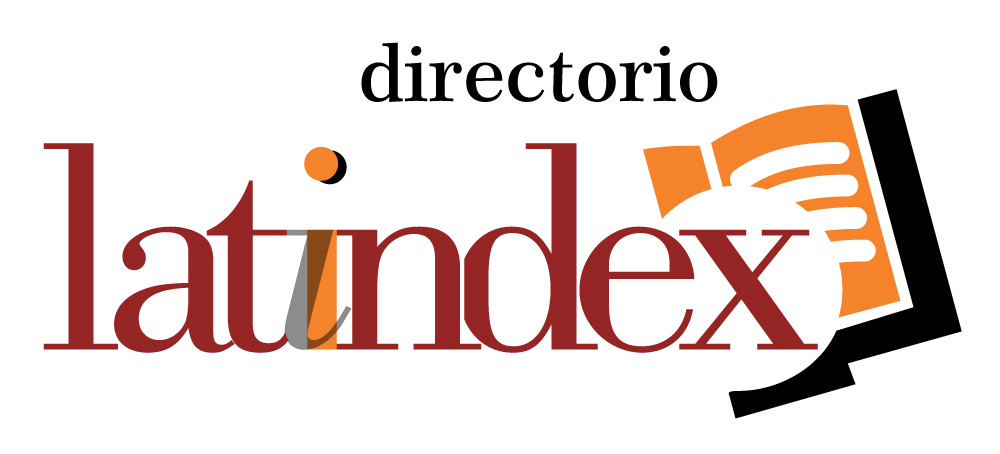El conflicto kurdo en Turquía: Una breve revisión de una compleja y prolongada cuestión étnica
Resumen
El conflicto kurdo en Turquía se basa en varias cuestiones que pueden atribuirse a asuntos étnicos y religiosos. Turquía es un Estado laico y también una nación islámica, y como los principios del Islam están intrínsecamente ligados a la política, es innegable la infl uencia que tiene en un país como Turquía, donde casi la totalidad de su población son musulmanes suníes. Como los kurdos son considerados parte de la comunidad musulmana, su trato como grupo minoritario difi ere: son asimilados como musulmanes a la vez que se elude su identidad étnica. Este artículo pretende ofrecer una mirada al complejo confl icto kurdo en Turquía.
Recibido: 15.6.20
Evaluado: 20.6.20
Aprobado: 30.6.20
Palabras clave
Texto completo:
PDF (English)Referencias
Abbas, T. (2017). Contemporary Turkey in conflict: How ethnic, political and religious conflicts will define Turkey’s future. Retrieved from: http://blogs.lse.ac.uk/europpblog/2017/01/02/contemporary-turkey-in-conflict/
Amnesty International (2006). Turkey: Article 301: How the Law on “Denigrating Turkishness” is an Insult to Free Expression (EUR 44/003/2006). Retrieved from: https://www.refworld.org/docid/44c611504.html
BBC News (2017). Who are the Kurds? Retrieved from: http://www.bbc.com/news/world-middle-east-29702440
Casanova, J. (2006). Rethinking Secularization: A Global Comparative Perspective. The Hedgehog Review. Spring & Summer 06. Retrieved from: http://www.iascculture.org/THR/archives/AfterSecularization/8.12CCasanova.pdf
Commission of the European Communities (2006). Commission staff working document. Turkey 2006 Progress Report. Retrieved from: www.coe.int/t/dghl/monitoring/ecri/Country-by-country/Turkey/TUR-CBC-IV-2011-005-ENG.pdf
Crossman, A. (2016). Ethnicity. Retrieved from: https://www.thoughtco.com/ethnicity-definition-3026311
Çelik, A. B. (2011). Ethnopolitical Conflict in Turkey: From the Denial of Kurds to Peaceful Co-existence? In D. Landis and R.D. Albert (Eds.), Handbook of Ethnic Conflict: International Perspectives, International and Cultural Psychology. (pp. 241-260). Springer. DOI 10.1007/978-1-4614-0448-4_10
Encyclopedia Britannica (2020). Turkish language. Retrieved from https://www.britannica.com/topic/Turkish-language
Glastonbury, N. [TEDx Talks] (2013, September 21). Turkey, Kurds, Language: Nicholas Glastonbury at TEDxGallatin [Video]. Retrieved from: https://youtu.be/Y5g1k8pza6Q
Hoffmeyer-Zlotnik, J. & Warner, U. (2010). The Concept of Ethnicity and its Operationalisation in Cross-National Social Surveys, 7, 107-132. Retrieved from: https://www.stat-d.si/mz/mz7.1/hoff.pdf
Holliday, A., Hyde, M., &Kullman, J. (2004). Intercultural Communication: An Advanced Resource Book. London, England and New York, USA: Routledge.
Holroyd, M. (2020). Turkey slams Belgium court ruling that PKK is not a ‘terrorist’ organization. Retrieved from https://www.euronews.com/2020/01/29/turkeyslams-belgium-court-ruling-that-pkk-are-not-terrorists-thecube
Jones, E. (2010). The Conflicts of Secularization and Islam in Turkey. Retrieved from:https://digitalcommons.salve.edu/cgi/viewcontent.cgi?referer=https://www.google.co.ve/&httpsredir=1&article=1046&context=pell_theses
Karakas, B. (2020). Turkey bans Kurdish-language play in Istanbul. Retrieved from: https://www.dw.com/en/turkey-bans-kurdish-language-play-inistanbul/a-55306289
Khan, M. (2014). What is Political Islam? Retrieved from: http://www.e-ir.info/2014/03/10/what-is-political-islam/
Letsch, C. (2017). In Turkey, Repression of the Kurdish Language Is Back, With No End in Sight. Retrieved from: https://www.thenation.com/article/archive/in-turkey-repression-of-the-kurdish-language-is-back-with-no-end-in-sight/
Martin, J., & Nakayama, T. (2010). Intercultural Communication in Contexts. New York, NY: McGraw-Hill.
McKernan, B. (2020). Killing of Kurd in Turkey sparks discrimination accusations. Retrieved from: https://www.theguardian.com/world/2020/jun/02/of-kurdin-turkey-baris-cakan-sparks-discrimination-accusations
Penal Code of Turkey (2016). Article 301. Degrading Turkish Nation, State of Turkish Republic, the Organs and Institutions of the State. Retrieved from:https://www.legislationline.org/download/id/6453/file/Turkey_CC_2004_am2016_en.pdf
Reus-Smit, C. (n.d). Constructivism. Somer, M. (2004). Turkey’s Kurdish Conflict: Changing Context, and Domestic
and Regional Implications. Middle East Journal, 58(2), 235-253. https://www.jstor.org/stable/4330003?seq=1
The Kurdish Project (2015). KRG: Kurdistan Regional Government. Retrieved from: https://thekurdishproject.org/history-and-culture/kurdish-democracy/krg-kurdistan-regional-government/
Totten, M. (2015). The Trouble with Turkey: Erdogan, ISIS, and the Kurds. Retrieved from: http://www.worldaffairsjournal.org/article/trouble-turkey-erdogan-isisand-kurds
Turan, R. I. (2020). PKK uses EU as a base for propaganda, recruitment activities: Report. Retrieved from: https://www.aa.com.tr/en/turkey/pkk-uses-eu-as-abase-for-propaganda-recruitment-activities-report-/1887518
Van Gaalen, M. (2015). Functional and Substantive Definitions of Religion. Zalewski, P. (2012). A Turkish War of Religion: Kurdish Activists Sense a Conspiracy. Retrieved from: http://content.time.com/time/world/article/0,8599,2116330,00.html
Zerpa, Y. (2011). Los Debates Teóricos de las Relaciones Internacionales y el Papel de la Religión en la Política Mundial. (Doctoral dissertation). Universidad Central De Venezuela, Caracas, Venezuela.
| DOI: https://doi.org/10.53766/HumSur |
| |||||||||||






